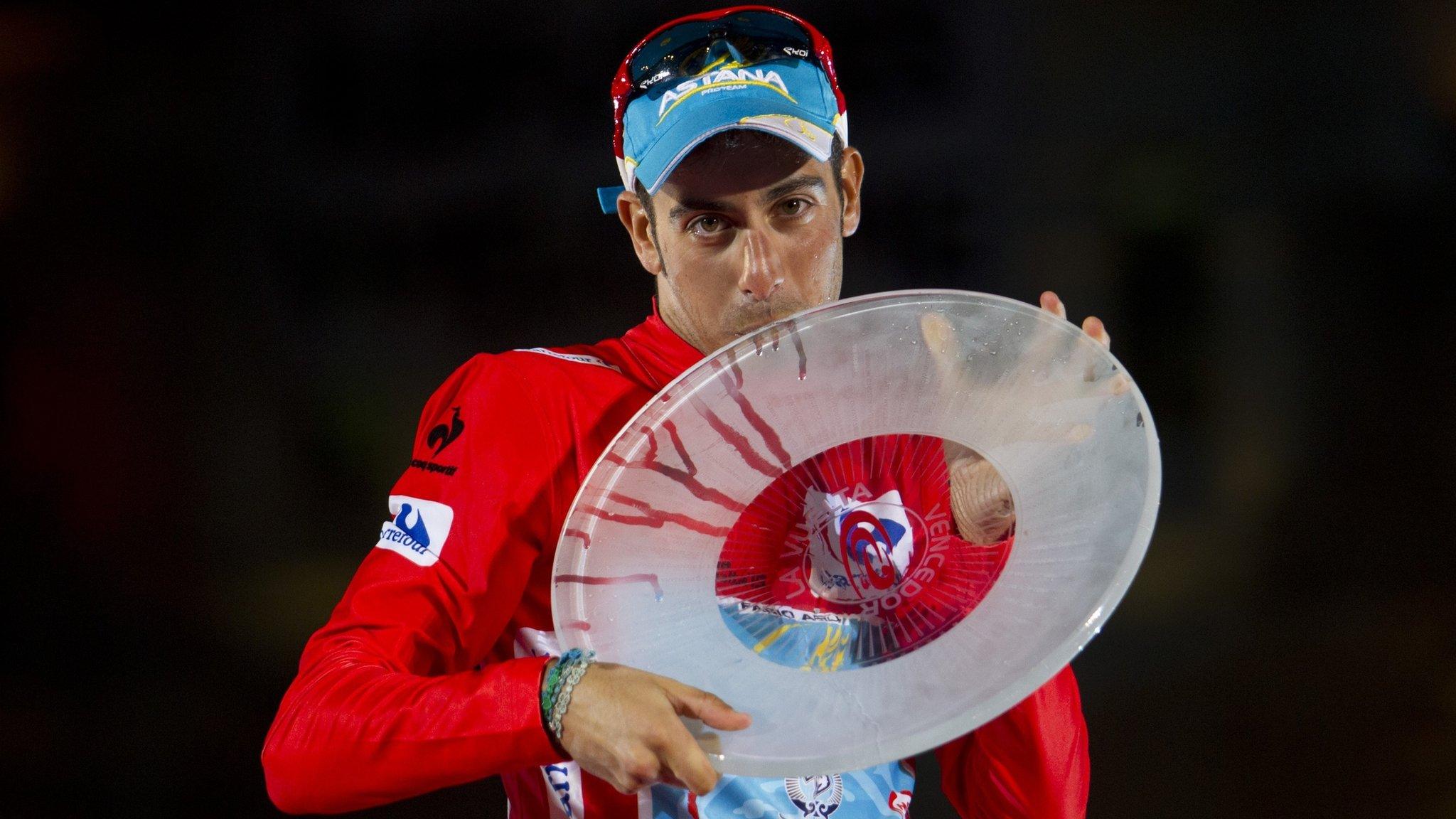Chris Froome: GB cyclist chasing historic Tour de France-Vuelta a Espana double
- Published
Chris Froome has "unfinished business" at the Vuelta a Espana as he looks to become the first rider in 38 years to win the Tour de France and its Spanish equivalent in the same year.
The Briton, who won a third Tour in July, has twice finished second at the Vuelta, which starts on Saturday.
Three-time winner Alberto Contador and Nairo Quintana are his main rivals.
"The tough course and stiff competition is bound to make for some aggressive racing," said Team Sky's Froome.
"It's already been a great summer for both myself and the team, but the Vuelta is another big challenge for us," added the 31-year-old, who also won time trial bronze at the Rio Olympics.
The history
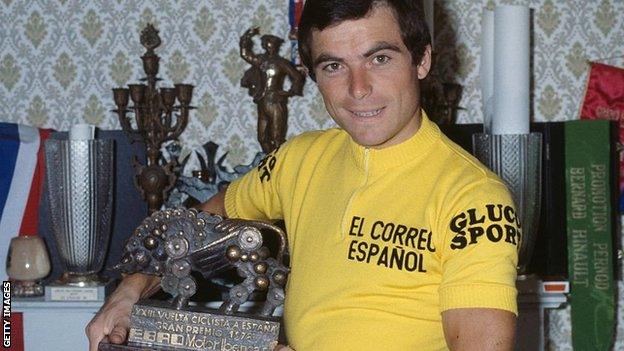
France's Bernard Hinault was the last rider to win the Vuelta and Tour in the same year, in 1978
Only Frenchmen Jacques Anquetil (1963) and Bernard Hinault (1978) have won the Tour/Vuelta double and, when they did, the Spanish leg was raced in the spring.
Carlos Sastre was the last rider to finish in the top three in both races in the same season, in 2008, when the Spaniard won the Tour and finished third in the Vuelta.
Froome shot to fame by finishing second in the 2011 Vuelta, one place ahead of Team Sky team-mate Sir Bradley Wiggins despite starting the race as his domestique.
He matched that result in 2014, finishing second to Contador after both had crashed out of the Tour. He tried for the double again last year but had to abandon the race after breaking a bone in his right foot in a crash in the Pyrenees during the 11th stage.
Spaniard Mikel Landa, who was expected to be one of Froome's key helpers in the mountains, has withdrawn with a hip injury and is replaced in the nine-man squad by another Spanish rider, climber David Lopez. Ireland's Nicholas Roche had also been scheduled to ride for Team Sky but has been sidelined by illness.
The rivals
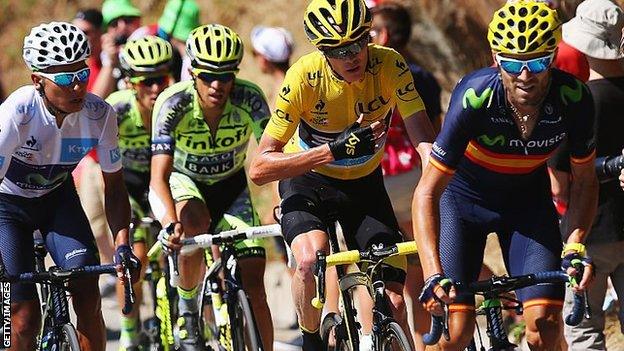
Froome (second right) dominated Quintana (left), Contador (second left) and Valverde (right) in the Tour de France
Contador is looking to match fellow Spaniard Roberto Heras and win the three-week race for a record fourth time. He is back racing after a combination of crashes and illness forced him to abandon this year's Tour.
"I will fight for the victory," said Contador, who has won seven Grand Tours and is racing his final one for the Tinkoff team before moving to the American Trek Segafredo team for next season.
"We will go day by day and I hope to have more good luck than I have had recently. I just hope for a better start than the one I had in the Tour."
This year's Tour runner-up Quintana will enjoy a route that favours the climbers, with 12 hill and mountain stages - featuring 10 summit finishes - and just one individual time trial.
The 2014 Giro d'Italia winner said he would "settle" for another podium finish, adding that he is "in good shape" and his Movistar team will "be strong in the mountains" with the 2009 Vuelta winner Alejandro Valverde in his team.
"I get on well with Alejandro and each one of us knows what we've got to do," said Quintana. "But we won't settle on an overall strategy until we see what kind of condition our rivals are in. Then we'll take it from there."
Valverde, who has won nine stages of his home race, is looking to become just the third rider to finish in the top 10 at all three Grand Tours in the same year, emulating Raphael Geminiani of France (1955) and Italy's Gastone Nencini (1957).
Defending champion Fabio Aru has not been selected by his Astana team.
The route
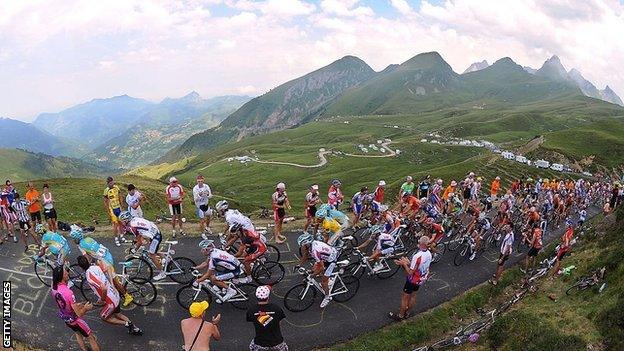
The Col d'Aubisque is the second most-climbed mountain in the Tour de France, after the Tourmalet
The 71st edition of the race will mainly take place in northern Spain, with stages in the Pyrenees mountains before heading to the east coast for five stages and to capital Madrid for the finale.
The 21-stage 3,315km (2,059 miles) race begins with a 27.8km team time trial in Ourense and features a 39km individual time trial on stage 19.
Stage eight's ascent of La Camperona on 27 August is the first summit finish and with a gradient of more than 20% for several sections, is expected to provide a stern test at the end of week one.
The following Saturday's stage in the Pyrenees will contain around 4,800m of vertical climbing and take place almost entirely in France. It will finish with an ascent of the legendary Col d'Aubisque - a 17km climb with an average gradient of 7%.
The Vuelta finishes with a nine-lap race around Madrid on Sunday, 11 September.
- Published10 August 2016
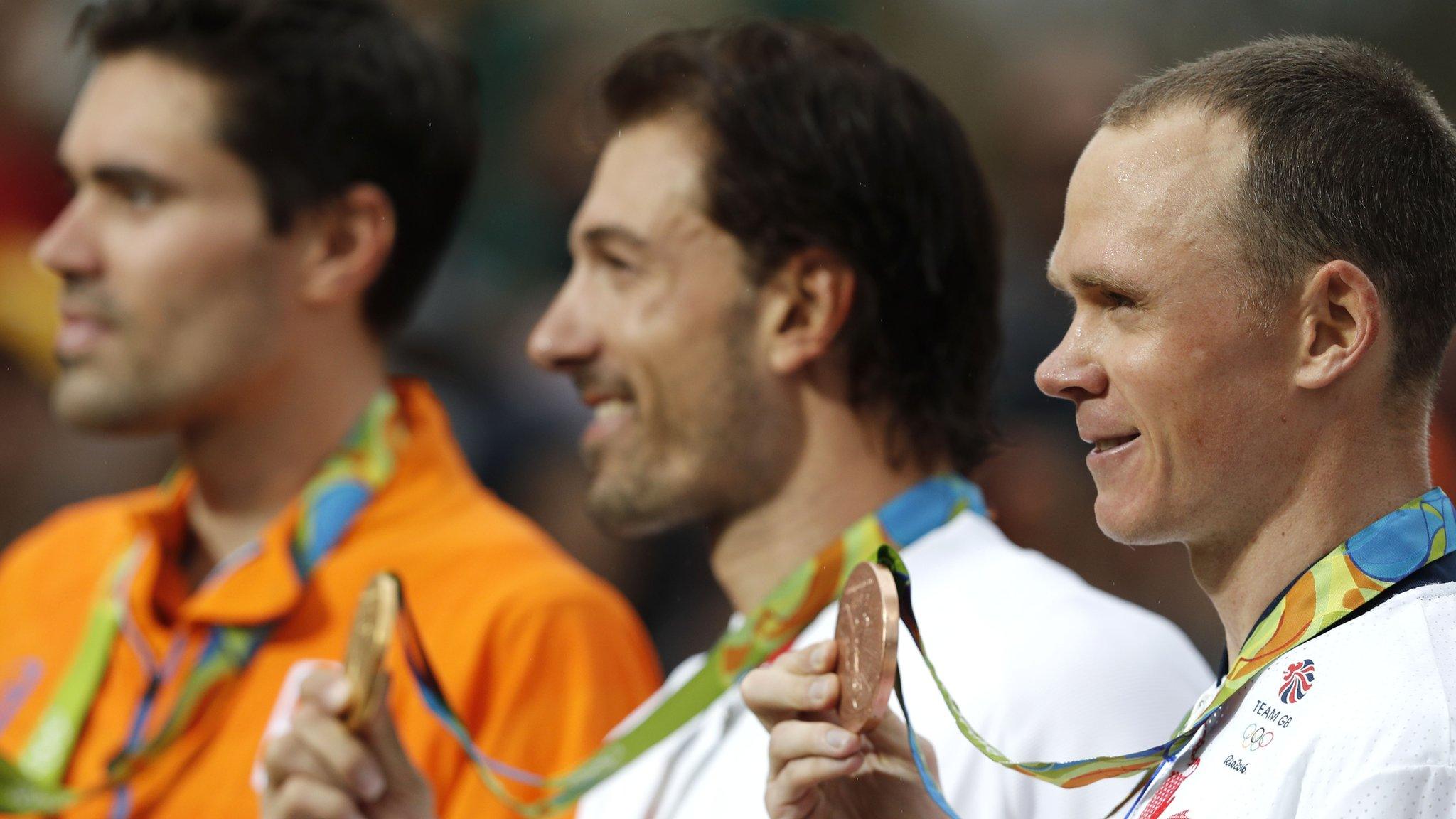
- Published24 July 2016
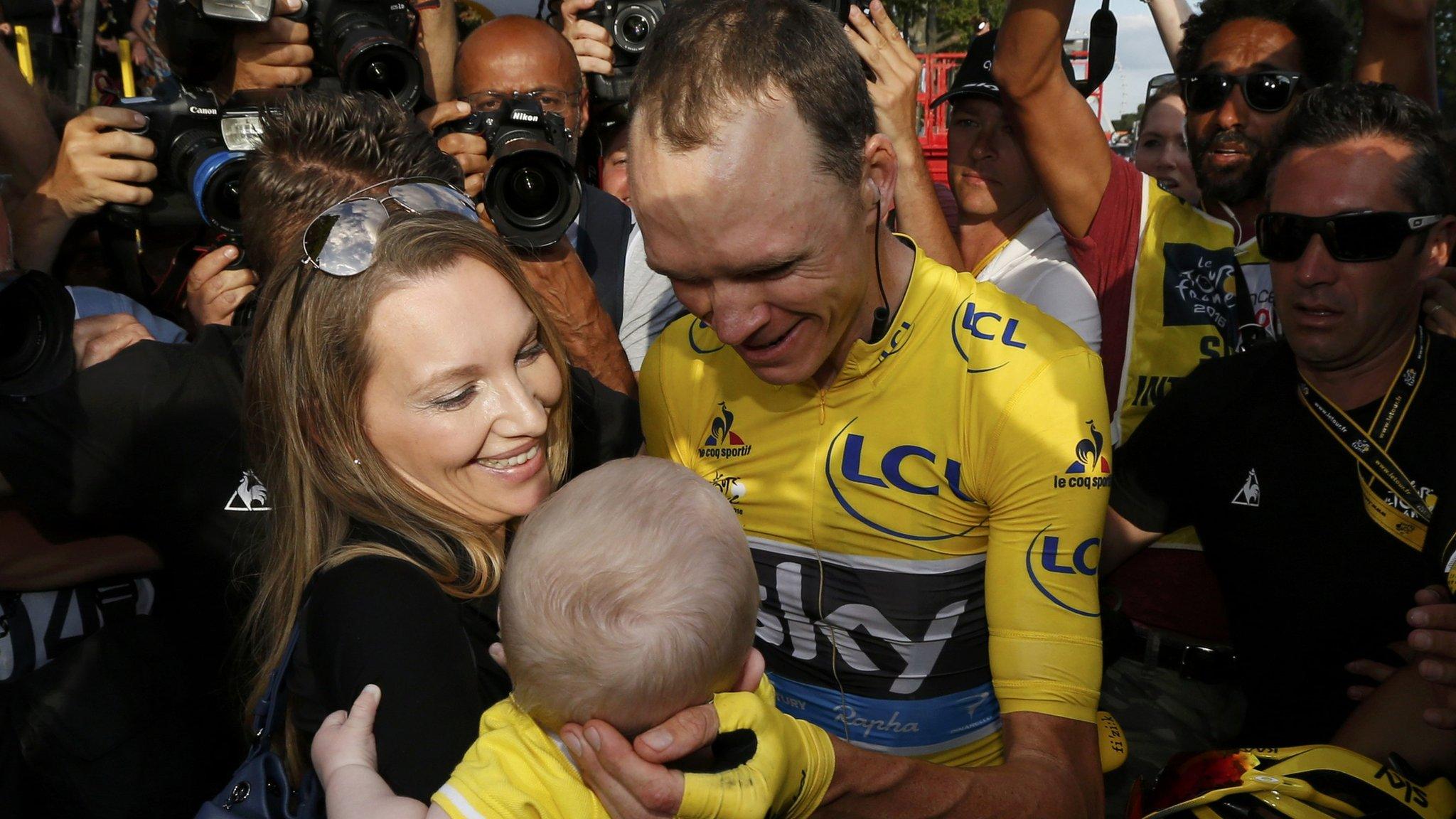
- Published13 September 2015
